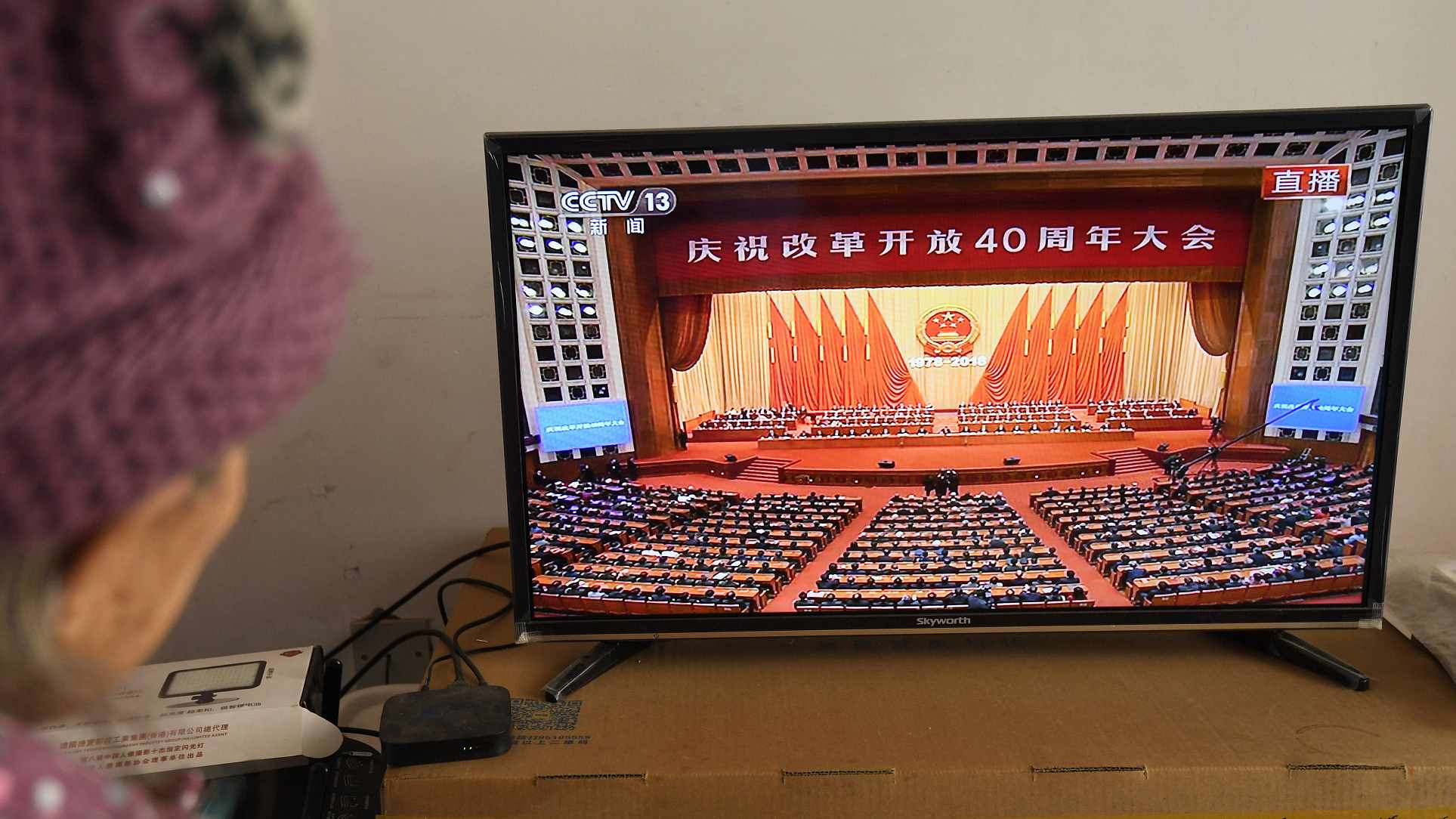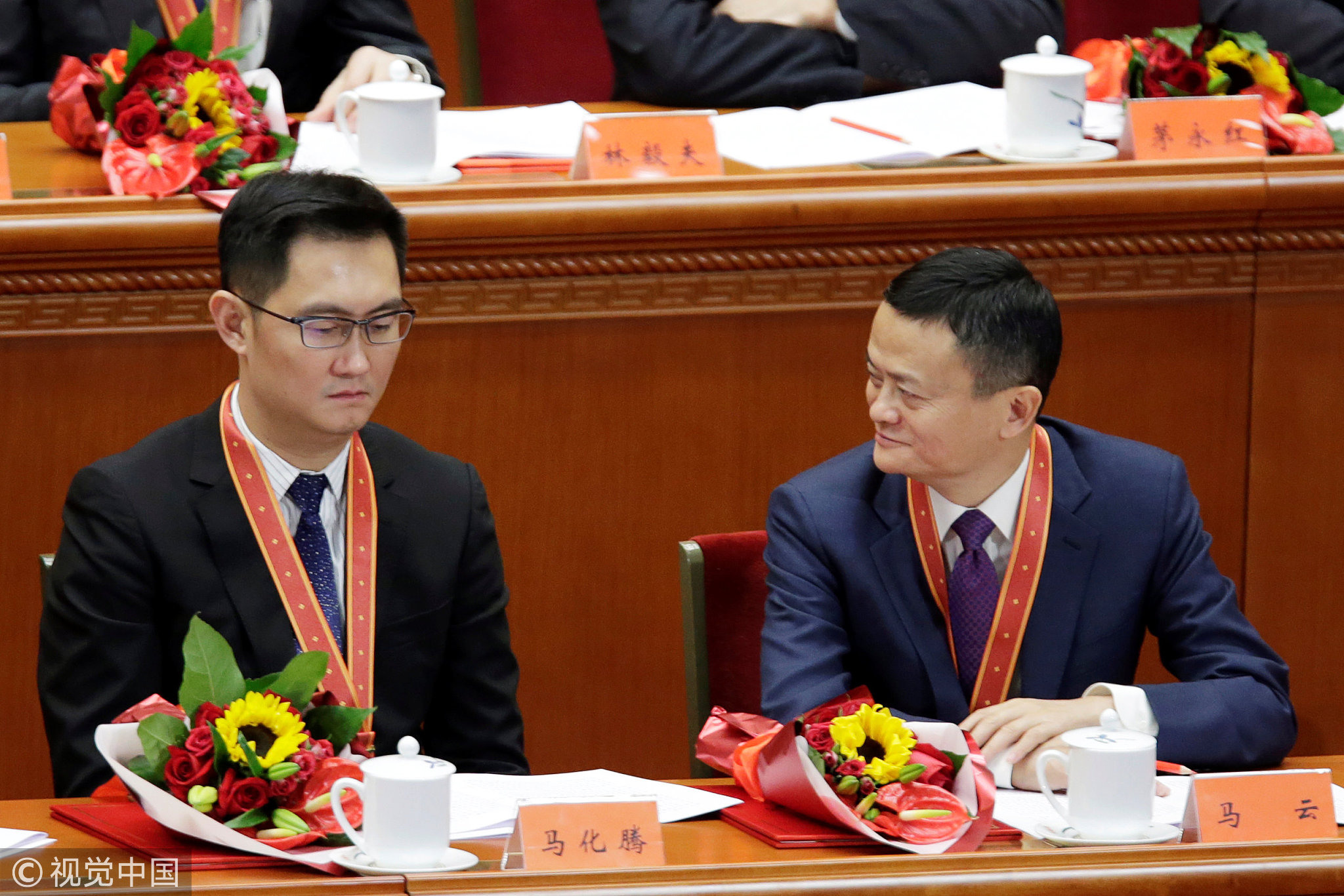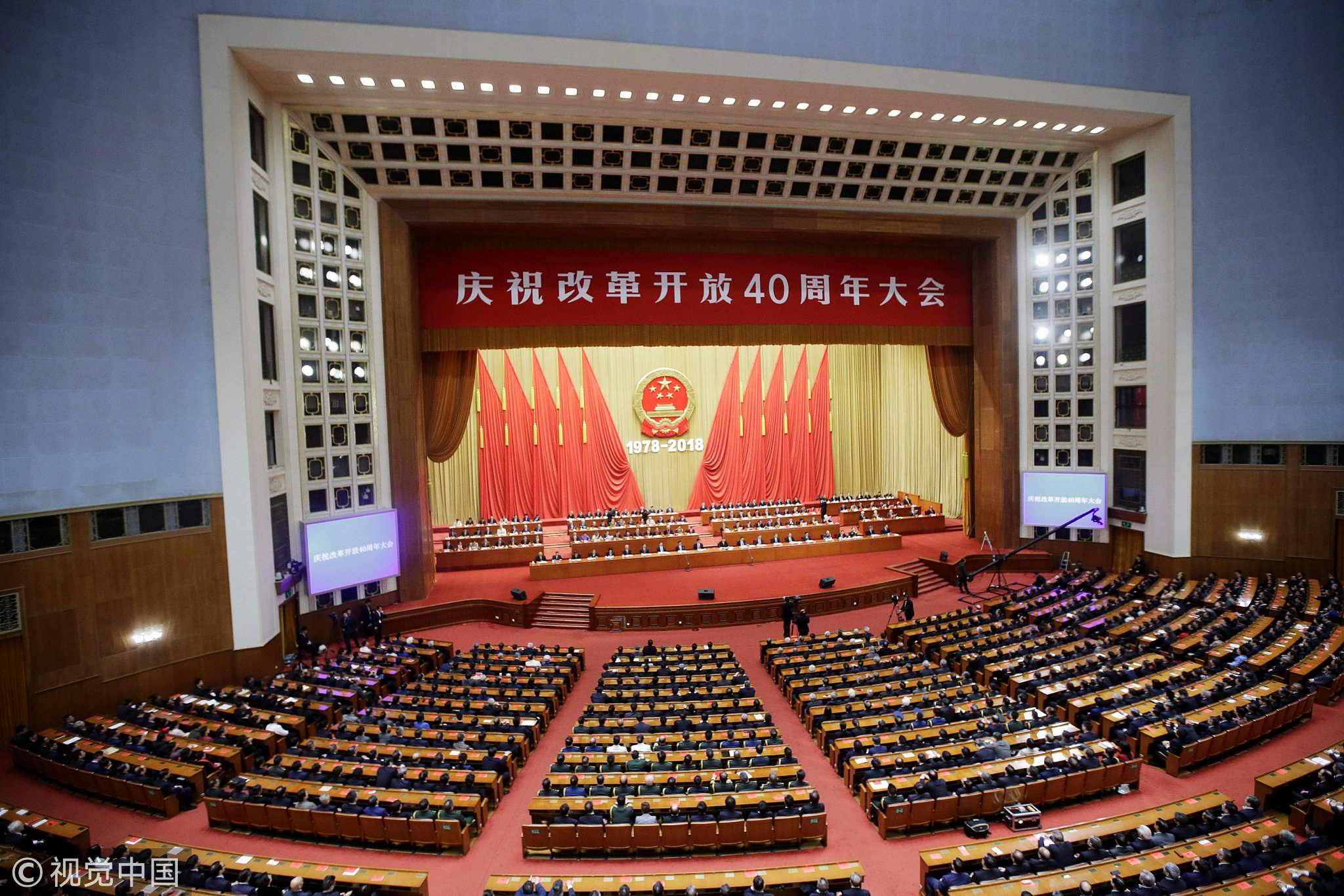
Opinions
13:43, 18-Dec-2018
Opinion: Historic CPC meeting ushered in China's new era
Updated
12:51, 21-Dec-2018
Kong Qingjiang

Editor's note: Kong Qingjiang is the dean of the School of International Law at the China University of Political Science and Law. The article reflects the author's opinion, and not necessarily the views of CGTN.
In the history of the Communist Party of China (CPC) since the founding of People's Republic of China, there is no meeting that has had such a huge bearing on the country's fate as the third Plenary Session of the 11th Central Committee of the CPC held on December 18, 1978. This is why on its 40th anniversary, the CPC Central Committee and China's State Council convened a special conference commemorating the historic meeting of the party.
As expected, Xi Jinping, general secretary of the CPC and president of the People's Republic of China, spoke highly of the meeting and elaborated on its historical importance.

Tencent's Chief Executive Officer Pony Ma and Alibaba's Executive Chairman Jack Ma attend an event marking the 40th anniversary of China's reform and opening up at the Great Hall of the People in Beijing, December 18, 2018. /VCG Photo
Tencent's Chief Executive Officer Pony Ma and Alibaba's Executive Chairman Jack Ma attend an event marking the 40th anniversary of China's reform and opening up at the Great Hall of the People in Beijing, December 18, 2018. /VCG Photo
At the end of 1978, the country was at a crossroad. On the one hand, the Cultural Revolution that had just ended, caused great damage to the economy. On the other hand, the then CPC leader insisted that the country should stick to the orthodox Marxism, Leninism and Mao Zedong thought, which focused on continued class struggle and revolution.
For ordinary people concerned where the country was heading, two questions remained: Would the impoverished China go ahead with its revolutionary tradition or would it take another path?
It was at this critical moment, Deng Xiaoping, a seasoned revolutionary who had just returned to the leadership and who had been accused of being a “capitalist roader” in the early days of the Cultural Revolution, called on the party and country to “emancipate the minds, seek the truth from facts, unite and look forward.”
It was Deng's compelling speech that became the highlight of the third Plenary Session of the 11th Central Committee.
That session marked a decisive historic turning point for China. It was this meeting that ushered in a policy change, later dubbed as Reform and Opening-up.
It was again this meeting that heralded a new era where China became the second-largest economy in the world. Although the country was not free from ups and downs during the past four decades, overall it has been firm in its efforts at reform and opening-up.
Since then, millions of people have been lifted out of poverty or extreme poverty, and millions of people have started to enjoy unprecedented material prosperity and freedom.

People attend an event marking the 40th anniversary of China's reform and opening up at the Great Hall of the People in Beijing, December 18, 2018. /VCG Photo
People attend an event marking the 40th anniversary of China's reform and opening up at the Great Hall of the People in Beijing, December 18, 2018. /VCG Photo
It is not difficult to find that during the past four decades, no political jargon has been as well-known in China as Reform and Opening-up, which has been associated with the legitimacy of the party's political agenda and the policy of the government. To many ordinary people, reform and opening-up has even become a testing stone for local governments.
Since the 18th Party Congress of the CPC, China has entered a new era. The hardworking Chinese people are striving to build a moderately prosperous society in all respects and to realize socialism with Chinese characteristics. It is widely expected that China will take over from the United States as the world's largest economy during this new era.
President Xi Jinping and the Central Committee are continuously pushing forward the reform and opening-up to accomplish the three historic tasks of advancing modernization, realizing China's reunification, and preserving world peace and promoting common development.
The grand celebration of the third Plenary Session of the 11th Central Committee sends a strong message that the CPC and the country will continue with its reform and opening-up, and Xi's speech is a resonant call among his comrades that consensus in furtherance of the process is most needed
If it is the reform and opening-up policy that has led to the rise of the country in the past four decades, it is also expected that the policy's furtherance will help the Chinese people realize their dream of national rejuvenation.
(If you want to contribute and have specific expertise, please contact us at opinions@cgtn.com.)

SITEMAP
Copyright © 2018 CGTN. Beijing ICP prepared NO.16065310-3
Copyright © 2018 CGTN. Beijing ICP prepared NO.16065310-3